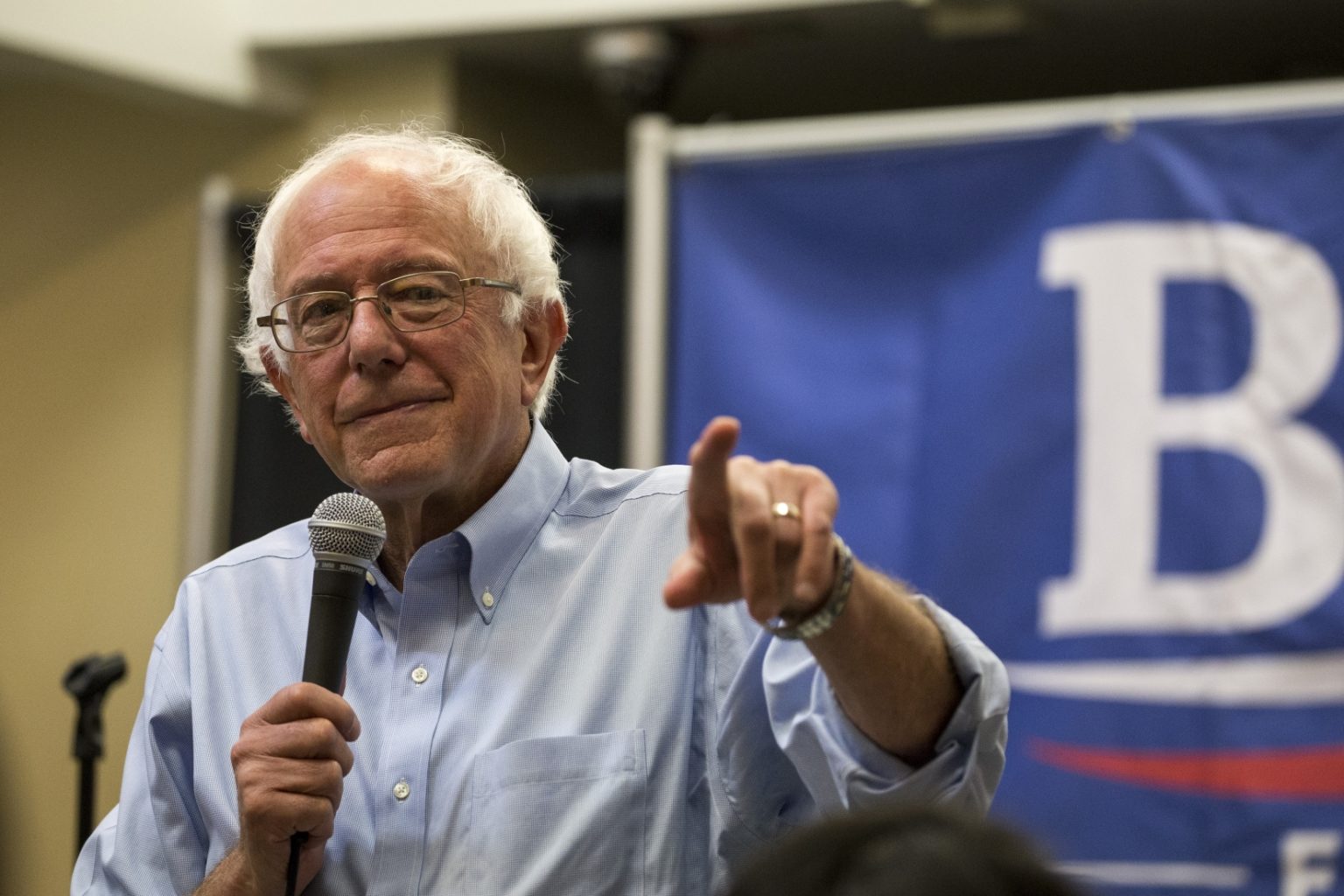As Bernie Sanders attempts an upset in New York’s April 19th primary, he has begun to increase his focus on the issues of fracking and climate change.
And since the state of New York banned fracking in 2015 and a recent Gallup poll reports only 25% of Democrats nationwide support fracking this would appear to be smart politics.
In his second of three rallies across New York on April 11th, Sanders took the time to address the issue and highlight the major differences on the issue between himself and Secretary Clinton for the audience in Albany. With the number of anti-fracking signs in the building, the strong response to the message was not surprising.
Sanders introduced the topic noting that when it came to fracking he and Clinton have “some very significant differences” and then congratulated the people of New York for standing up to the fossil fuel industry to ban fracking.
“The growing body of evidence tells us that fracking is a danger to our water supply – our most precious resource – we cannot poison our water,” Sanders said. “In my view if we are serious about safe and clean water – and we must be serious about safe and clean water – we need to put an end to fracking not only in New York and Vermont but in every state in the country.”
Sanders didn’t stop with his call for a ban on fracking due to the dangers of water pollution. He raised the issue of methane releases due to the process of producing and transporting fracked gas and oil and noted, “The threat of methane emissions from fracking represents a profound danger to our climate. This is above and beyond poisoning our water.”
Another point Sanders made during his speech was that while he was speaking the truth on many issues he knew that the issues wouldn’t be covered by the major media outlets. And he certainly was correct about that when it came to his remarks on climate change and methane.
In articles about Sanders position on fracking in the Washington Post and the New York Times there was no mention of methane or any “profound danger to our climate.”
Sanders also took a shot at the idea of natural gas being a bridge fuel to the future — a position Clinton supports.
“While natural gas may burn cleaner than coal,” Sanders explained. “The enormous explosion of fracking and the resulting release of methane presents a significant danger to our climate.”
Appearing earlier in the day at a rally in Binghamton, the New York times reported that Sanders said, “Secretary Clinton’s role in fracking when she was secretary of state is not a good record. Secretary Clinton and her State Department worked to export fracking throughout the world.” Something well documented by Mother Jones.
Sanders just released a new ad titled “No Fracking Anywhere” featuring Susan Sarandon. So for at least the next week until the New York primary, it appears we will be hearing a bit more about fracking and climate change on the campaign trail thanks to Senator Sanders.
And while the New York Times didn’t mention methane and the danger it poses to the climate in its campaign coverage, the topic did come up in a March 31st article on the massive Aliso Canyon methane leak. That article ended with the following paragraph.
“The most dangerous threats to our species are precisely those that are most difficult to visualize: long-term, slow-to-emerge, amorphous. These threats include not only warming temperatures but also mutating viruses and political corruption and tend to be invisible, dimensionless and pervasive, like death. Like natural gas.”
Sanders is currently the only candidate directly addressing the “most dangerous threats to our species” posed by fossil fuel production and consumption — even if the media isn’t reporting his remarks.
Blog image: Phil Roeder via Flickr
Subscribe to our newsletter
Stay up to date with DeSmog news and alerts







